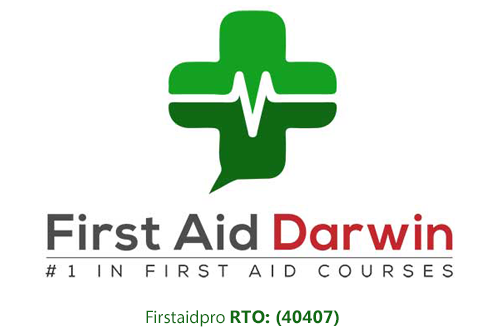Course Name
Manual Handling Refresher Course for Health Workers
Course Cost
$54.55
Course Delivery
Blended: Self-paced Online Learning + In Person Practical Training
Course Duration
2 Hours – Face-to-Face Training & Assessment (+ self-paced pre-reading)
Is the course accredited?
No
Course Certificate
Issued same day (Conditions Apply)
Available Discounts
Group discounts available
Manual Handling Refresher Darwin
Statement Of Attainment
A manual handling refresher course serves as an annual update for anyone who has already completed their initial manual handling course.
This refresher course is for students who have already completed a HLTWHS005 Conduct Manual Tasks Safely certification and would like to update their knowledge, whether it is for personal improvement or to meet organisational guidelines. This course is open to both domestic and international students, and those who successfully complete this course will receive same day certification via email.
Manual handling tasks are those which require the lifting, lowering, pushing, pulling, carrying, or relocation of heavy loads or objects. People who perform manual handling tasks can be found in almost any industry, job description, or workplace, making manual handling training an important step for success in any career.
Manual handling refresher training allows you to keep your knowledge up to date while complying with new safety legislation and regulations.
Why Choose First Aid Courses Darwin?
First Aid Courses Darwin offers Australia’s best manual handling refresher training. Here’s why you should choose us:
- Experienced, compassionate trainers
- A nationally recognised training organisation; Endorsed by the Australian College of Nursing
- Affordable courses; no hidden resource fees, pay everything upfront
- Convenient location; handily located in the heart of Darwin
Enquire Today
Contact us about our Manual Handling Refresher Course Today!
What You'll Learn
Manual handling refresher training ensures the skills and knowledge you learnt during your initial course remain second nature. We’ll refresh your knowledge of proper proper techniques, and safe manual handling practices, including:
How to prepare yourself to perform a manual handling task by using four P’s of proper manual handling techniques (Plan, position, pick, and proceed)
Proper lifting techniques and the impact of correct body pre-placement
How to identify hazardous manual tasks through risk assessment
Risk factors including repetitive tasks, incorrect postures, and inefficient systems of work
Methods for minimising risk
The national code of practice and Workplace Health and Safety (WHS) regulations
Strategies for promoting health and safety in your workplace
Reporting procedures
Manual handling injuries which can result from improper techniques
Manual handling tools, mechanical aids, and how to use them
Lift policies
Basic anatomy
The importance of regular breaks
Most importantly, we’ll update you on any breakthroughs on safer manual handling techniques and equipment from the past year. We strive to keep all our students on the cutting edge of safety.
Eligibility & Enrolment
There are almost no prerequisites to enrol in our manual handling refresher training. However, there are some minimum requirements which all students must meet.
Students must have already completed HLTWHS005– Conduct Manual Tasks Safely
All students must be at least 18 years old, or older at least 14 years old with permission from a parent or guardian.
Students must possess a basic level of physical fitness required to carry and move heavy loads.
Students must have enclosed footwear and casual clothes to wear to their training session.
Students must be literate in English to comprehend simple safety guidelines, signs, and instructions.
All students will require a Unique Student Identifier (USI) number.
International students must be in Australia on a student visa (check with the Department of Home Affairs for acceptable visas) and must also already be undertaking a principal course with a CRICOS registered provider.
Course Delivery:
First Aid Courses Darwin delivers its manual handling refresher training through a blend of hands-on, practical training and online, self-guided theory. Students are to complete the self-guided portion first and bring it with them to their practical session as proof. The time it takes to complete the self-guided portion of your training depends entirely on your personal commitment and your reading skill level.
Our hands-on portion of their training lasts for only two (2) hours. After this, successful students will be emailed their certificate on the same day.
Course Fees:
The medication administration course consists of a single upfront payment of $125.
For any questions or concerns about paying course fees contact First Aid Darwin at 1300 029 132.
Training Locations
First Aid Courses Darwin offers HLTWHS005 Conduct Manual Tasks Safely training from our Darwin training centre in the heart of the city. Easily accessible by car or by public transport, our training centre can be found at the following address:
- Level 5, 116 The Esplanade, Darwin, Northern Territory, 0800
Book A Manual Handing Refresher Course Today
Manual handling is vital for almost every career or profession. There are few people who don’t stand to benefit from manual handling training. Keep yourself safe and healthy on the job, help promote workplace safety, and secure your career by booking a manual handling course today.
Manual handling training can help save lives, and keeping the skills and knowledge fresh in your mind is vitally important. It is strongly recommended a manual handling qualification be renewed at once every 12 months. With First Aid Courses Darwin manual handling refresher training, you can ensure your skills stay sharp.
Frequently Asked Questions
The frequency of manual handling refresher courses depends on various factors, including the nature of the work, industry regulations, and individual circumstances. As a general guideline, it is recommended to refresh manual handling training every 1 to 2 years. However, certain industries or workplaces may require more frequent refreshers, especially if there are changes in procedures, equipment, or regulations. Regular refreshers ensure that individuals maintain awareness of best practices and contribute to a safer working environment.
A manual handling refresher course is particularly crucial for healthcare workers who are involved in activities requiring physical effort to lift, move, or support loads. Given the unique challenges and responsibilities in healthcare settings, regular refresher training is essential. Whether you’re a nurse, caregiver, or any healthcare professional, staying updated with the latest techniques and safety measures through a refresher course ensures the well-being of both the care provider and the patient. It’s a proactive step toward maintaining a safe and supportive environment within healthcare practices.
A manual handling certificate is required to ensure that individuals are trained to safely undertake manual handling tasks in the workplace. Employers may require this certification to ensure compliance with health and safety legislation and to mitigate liability in the event of manual handling-related injuries. Without this certification, there will be certain jobs you simply cannot apply for. Examples include construction workers, certain disability support workers, and nurses.
No. While training includes e-readings to be completed on your own time, due to the necessity of practical training, there are no online courses for manual
The answer to this question depends where in Australia you are. In some states and territories this qualification does not expire, and in others a manual handling certificate remains valid for two (2) years. Regardless, Safe Work Australia, the Nursing and Midwifery Board of Australia, and most organisations recommend manual handling refresher training be retaken once a year to ensure the knowledge this course provides remains second nature.
handling. The only way to correctly learn the best and safest manual handling techniques is first hand through practical training sessions.
Learning how to safely perform potentially hazardous manual tasks is not something you can learn from reading a book. This is why all our training takes place in person, and simulates scenarios you might encounter in a real work environment.
No. Due to the physical nature of manual handling, this training must be conducted in person. While plenty of theoretical learning is involved, students must also learn about the manual handling equipment, the demonstration and assessment of which must be displayed and can only be done so in-person.
A hazardous manual handling task is any activity which can cause injury (be it immediately or gradually) if performed incorrectly. Specific examples of manual handling activities include jobs which require a person to carry a particularly heavy object or load, perform repetitive movements such as assembly line work or data entry, adopt awkward postures, or be exposed to sustained vibration when using certain powered equipment.
The consequences of performing manual handling tasks incorrectly can be both physical and mental. Some of the most common consequences include:
Physical Ailments: Incorrect manual handling practices can lead to short-term injuries such as cuts, sprains, bruises. They can also cause longer-term problems such as soft tissue injuries, nerve injuries, and long-term musculoskeletal disorders like lower back issues and broken bones.
Mental Health Issues: While not directly caused by manual handling, the risk of injury and accidents can negatively impact employees’ mental health. Long-term conditions may become difficult to manage, affecting mental well-being and potentially leading to stress, depression, or anxiety.
The Hazardous Manual Tasks Code of Practice outlines the health and safety duties of duty holders in relation to hazardous manual tasks and provides practical guidance on the risk assessment and risk management process, including hazardous manual task identification and risk assessment. The code is based on a national model code of practice developed by Safe Work Australia, and it applies to all types of work and all workplaces where performing manual tasks is required.
Manual handling tasks are important as they involve physically exerting force to lift, carry, push, or pull objects. Recognising potential manual handling hazards to prevent injuries and promote a safe working environment is crucial. Manual handling training is an essential part of many legally compliant workplace procedures.
Importantly, these courses help maintain correct posture and protect the spine. By practising correct spine posture, workers can minimise the risk of musculoskeletal injuries and maintain their overall well-being.


